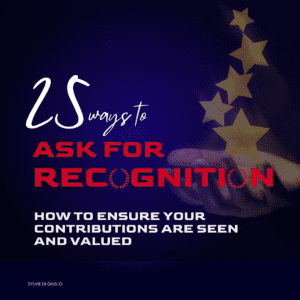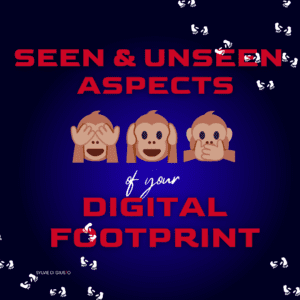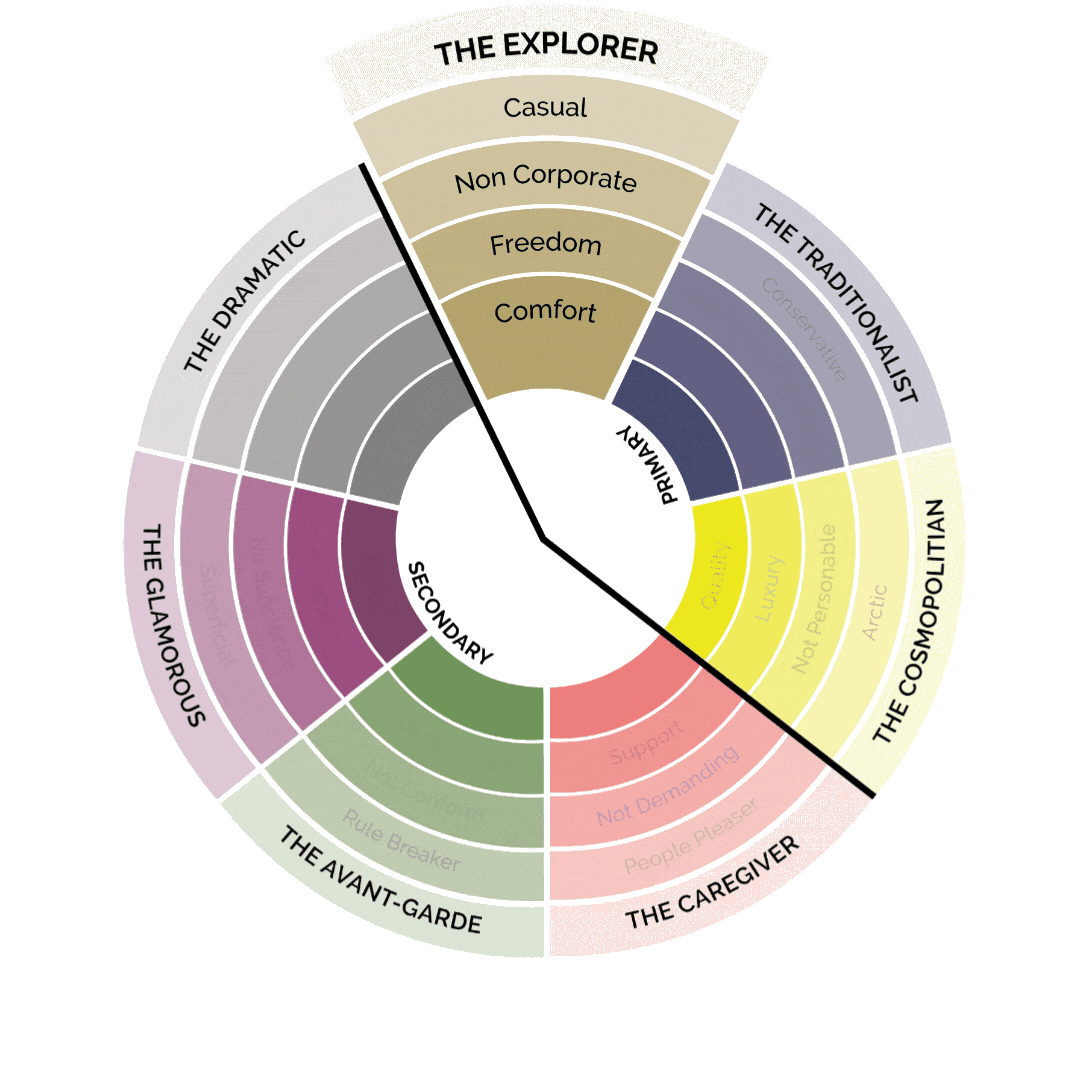EMOTIONAL INTELLIGENCE FOR LEADERS
Why is it important in the workplace and does it really matter?
Why is emotional intelligence important for your organization?
Emotional intelligence, also known as EQ, plays a significant role in the success of an organization. It impacts communication, teamwork, leadership skills, and overall company culture. Individuals with high EQ can effectively manage their emotions and navigate relationships with others, leading to improved collaboration and productivity. On the other hand, a lack of emotional intelligence can result in conflicts and a negative work environment. Decision-makers value professionals with a high level of EQ, as they can handle difficult situations and maintain positive relationships with colleagues and clients.
Clients and customers also respond well to professionals with high EQ, as they can understand and meet their needs in a considerate and efficient manner. Stakeholders and investors also see the value in emotionally intelligent employees, as it can lead to a strong reputation and successful reputation for the organization
Is emotional intelligence for leaders really important?
Emotional intelligence not only affects your performance at work but also influences how others perceive you. Your reputation and professional brand rely heavily on your ability to manage yourself and navigate interpersonal relationships. Additionally, possessing strong EQ can lead to advancement opportunities and better job satisfaction.
The most requested emotional intelligence skills professionals in the workplace need are self-awareness, self-regulation, motivation, empathy, and social skills.
- Self-awareness as a professional means that you can recognize and understand your emotions, as well as the impact of those emotions on others.
- Self-regulation involves managing your emotions productively instead of negatively affecting your decisions or actions.
- Motivation refers to being driven towards goals and having the passion for achieving them.
- Empathy allows you to see things from others’ perspectives and understand their emotions, leading to better communication and collaboration.
- Social skills involve building solid relationships, influencing others, and managing conflicts effectively.
Failing to have these emotional intelligence skills can lead to negative consequences such as decreased productivity, low morale, damaged reputation, and strained relationships with colleagues.
What are some signs that you are not interacting emotionally intelligent in the workplace?
Some indicators that you may not be displaying emotional intelligence in the workplace include: consistently struggling with anger or frustration, difficulty resolving conflicts, being inflexible or closed-minded, and always having strained relationships. It can also manifest as a lack of self-awareness, an inability to accept feedback, and resistance to change.
Leaders who have a low EQ struggle with
- Poor stress management
- Lack of empathy and understanding toward others
- Difficulty building relationships and networking
- Unable to handle criticism or feedback
- Inability to admit mistakes or take responsibility for actions
- Difficulty motivating themselves or being a team player
- Poor problem-solving skills
- Difficulty adapting to change or being flexible
- Consistently making impulsive decisions
- Difficulty managing and delegating tasks effectively.
What are some signs that you are an emotionally intelligent leader in the workplace?
Some indicators of high emotional intelligence include: being self-aware and able to recognize and understand emotions, being able to effectively manage stress, displaying empathy towards others, having strong communication and interpersonal skills, possessing motivation and drive towards personal and professional goals, being able to handle criticism and feedback, being adaptable and open to change, making rational decisions, and being a strong leader.
Leaders who have a high EQ master in
- Effective stress management
- Empathy and understanding toward others
- Building strong relationships and networking skills
- Open to accepting feedback and criticisms constructively
- Admitting mistakes and taking responsibility for actions
- Motivating themselves as well as being a team player
- Strong problem-solving abilities
- Adapting to change and being flexible
- Making rational decisions
- Effectively managing and delegating tasks
What are the consequences if you are not emotionally intelligent in the workplace?
Not possessing emotional intelligence can lead to strained relationships, conflicts, and a negative work environment. It may also result in missed opportunities for advancement and job dissatisfaction. Additionally, a lack of emotional intelligence can impact reputation and professional brand and hinder one’s ability to impress or make an excellent first impression.
In your personal and professional relationships, a low EQ can cause a lot of problems. Avoiding stress and ignoring your emotions are two things you often do. If you keep pushing all these emotions down, you could have many mental health problems, including anxiety and depression.
In the workplace, being unable to handle stress and emotions can lead to poor decision-making and lower productivity. It also makes it harder for you to build strong relationships with colleagues, potentially leading to conflicts and missed opportunities for advancement. Your reputation and professional brand may suffer as well.
Overall, lacking emotional intelligence can negatively affect both yourself and those around you in your personal and professional life.
How does emotional intelligence interconnect with first and lasting impressions?
Emotional intelligence plays a significant role in how individuals perceive and interact with each other, both in the initial meeting and throughout the development of a relationship. Individuals with high EQ can read emotions accurately, communicate effectively, handle conflicts productively, and make rational decisions – all of which can positively impact first impressions. Additionally, being emotionally intelligent allows individuals to maintain and improve relationships, leading to positive lasting impressions. On the other hand, lacking emotional intelligence can result in negative first and lasting impressions through misunderstandings, conflicts, and reputation damage. To make a good impression and foster healthy relationships,
- For your visual appearance, this means being mindful of how your body image, clothing, accessories, makeup or hair, and even scent can affect others’ perception of you. It’s essential to consider the environment and culture in making these choices and how your appearance may reflect on your reputation and professional brand.
- For your behavior and the way you communicate with others, this means being aware of your body language, tone of voice, and the words you use. It also means being able to accurately read and understand emotions, effectively communicate your own emotions, handle conflicts productively, and make rational decisions.
- For your digital communication, this means being conscious of the language and tone used in emails, texts, and online posts. It also means maintaining professionalism and appropriately representing yourself while still being authentic.
- Lastly, for your environment, this means being aware of how your physical space – whether it’s at the office, in a meeting room, or even just at your desk – can impact others’ perceptions of you.
Overall, emotional intelligence is interconnected with first and lasting impressions through its influence on communication, relationships, reputation, and professional brand. Developing and maintaining a high EQ can significantly benefit how you are perceived in both personal and professional settings.
While we cannot control others’ perceptions of us, actively improving our emotional intelligence can impact how we present ourselves and interact with others, ultimately improving our chances of making a positive first impression and maintaining positive relationships.
Emotional Intelligence for Leaders in a Nutshell
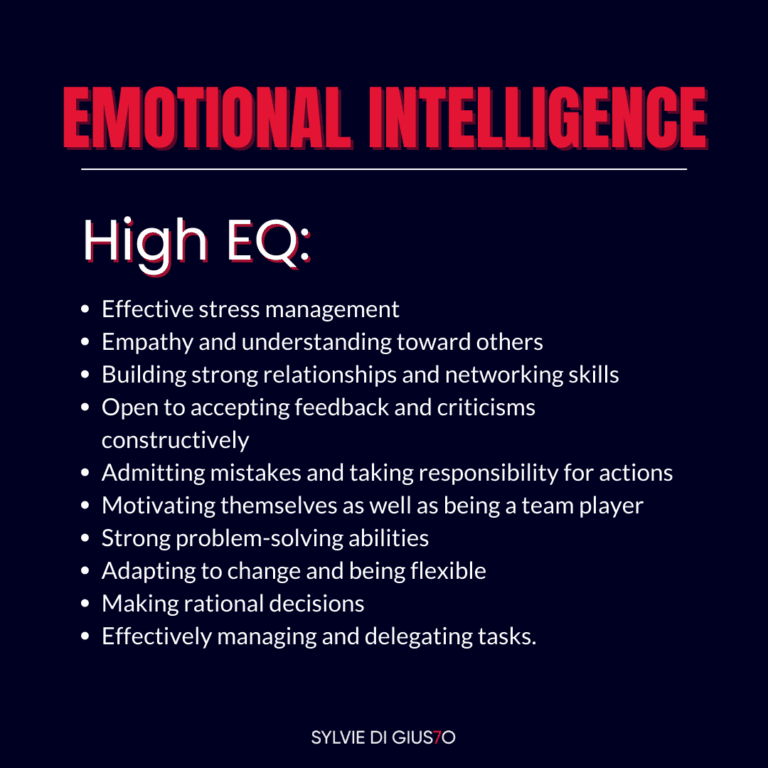
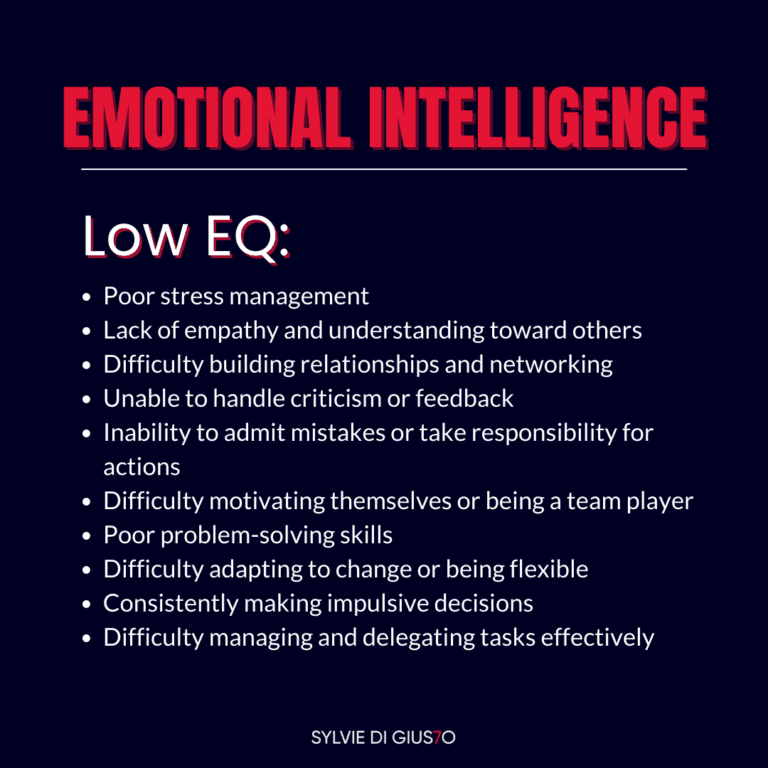
PS: Interested in more content like this? Make sure to follow me on Instagram. It’s where I visualize and publish my thoughts daily. I hope to see you there.
